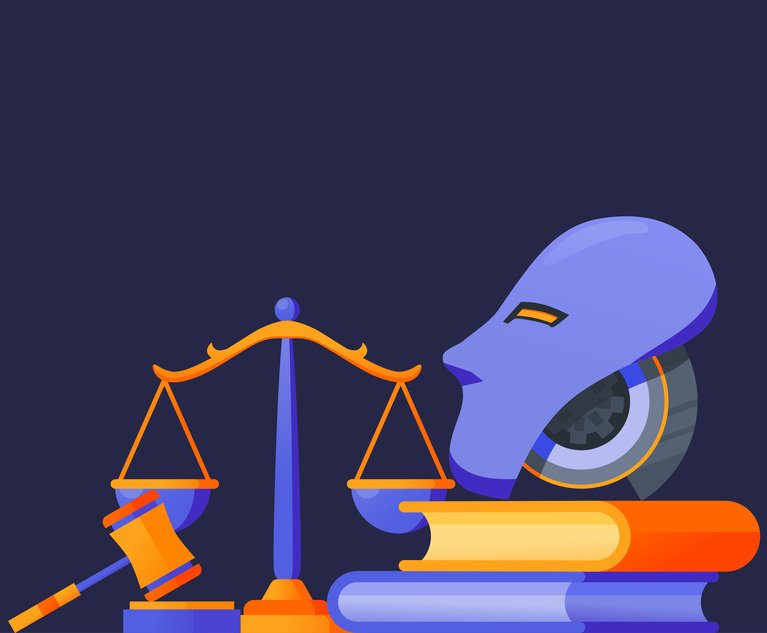Jonathan Bick

November 27, 2024 | New Jersey Law Journal
AI Poisoning: A Novel Cybersecurity Option"This technique involves modifying the AI algorithm to intentionally produce specific erroneous results," writes Brach Eichler's Jonathan Bick.
By Jonathan Bick
6 minute read

November 06, 2024 | New York Law Journal
Using In Rem Jurisdiction to Ameliorate Artificial Intelligence DifficultiesJonathan Bick discusses the process of holding an AI accountable for any bad acts it may have caused. He writes: "Since an AI is not a legal entity, it may avoid being held accountable for its bad acts because it cannot be a party to a court proceeding. However, an AI may be the object of a court proceeding…which would place it under the jurisdiction of a court and that court may transfer the AI to the plaintiff and thereby ameliorating the difficulties associated with an AI's bad acts."
By Jonathan Bick
5 minute read

September 24, 2024 | New York Law Journal
Artificial Intelligence Product ContractsHaving a clearly delineated AI product agreement can limit AI software product liability.
By Jonathan Bick
6 minute read

August 22, 2024 | New York Law Journal
Admissibility of Artificial IntelligenceAI differs from traditional software, perhaps requiring novel admissibility considerations.
By Jonathan Bick
9 minute read

June 20, 2024 | New York Law Journal
Artificial Intelligence Use and Ethical ComplianceSince it may be argued that a lawyer's decision not to use Artificial Intelligence (AI) is unethical, and the improper use of AI may also be unethical, it is important that attorneys become cognizant of the application of legal ethics to AI. The first step toward AI use ethical compliance is the timely disclosure of AI use particularly related to generative AI tools. Such a step is likely to ameliorate or eliminate many AI use legal ethics difficulties.
By Jonathan Bick
7 minute read

March 25, 2024 | New York Law Journal
Internet Law as Guide to AI LegislationWhile laws and regulations may lag innovation, Internet laws and regulations are likely to be valuable guides to Artificial Intelligence legislation. Due to the similarities of Internet technology and AI technology, Internet law options and implementation strategies are expected to be applicable to AI legislation.
By Jonathan Bick
6 minute read

February 27, 2024 | New York Law Journal
Addressing AI Legal Difficulties With Existing Legal OptionsA discussion of the legal and ethical implications of AI.
By Jonathan Bick
10 minute read

December 01, 2023 | New Jersey Law Journal
Artificial Intelligence Cybersecurity Difficulties Require Amending Legal SolutionsWhile existing business and technological options exist to address AI cybersecurity issues and ameliorate the adverse effects of AI cybersecurity difficulties, AI programmer protection requires amending cybersecurity legal defenses.
By Jonathan Bick
6 minute read

July 31, 2023 | New Jersey Law Journal
'Bogus' Cases and Confidential Data: How Artificial Intelligence Tests Legal EthicsWhile the use of AI for writing may enhance creative analysis and identification of persuasive precedents, such use may also violate legal ethics rules, including the duty of competence, the duty of confidentiality and assisting in the unauthorized practice of law.
By Jonathan Bick
6 minute read

July 11, 2023 | New Jersey Law Journal
Copyrighted Content and the Legal Difficulties of Training AIThe primary legal difficulty associated with AI training is the acquisition and use of training data without the consent of the owner of said training data.
By Jonathan Bick
6 minute read
Trending Stories
- 1GCs Must Act Now to Prepare for the Trump Administration’s First Months
- 2Appreciating the Important Work the Middlesex County Civil Bar Panel Does
- 3Patent Disputes Over SharkNinja, Dyson Products Nearing Resolution
- 4Freshfields Name Change Becomes Official
- 5Lawyers on TikTok Seek the Right Mix of Substance and Levity
More from ALM
- Scan In Progress: Litigators Leverage AI to Screen Prospective Jurors 1 minute read
- Legal Speak at General Counsel Conference East 2024: Match Group's Katie Dugan & Herrick's Carol Goodman 1 minute read
- Legal Speak at General Counsel Conference East 2024: Eric Wall, Executive VP, Syllo 1 minute read



